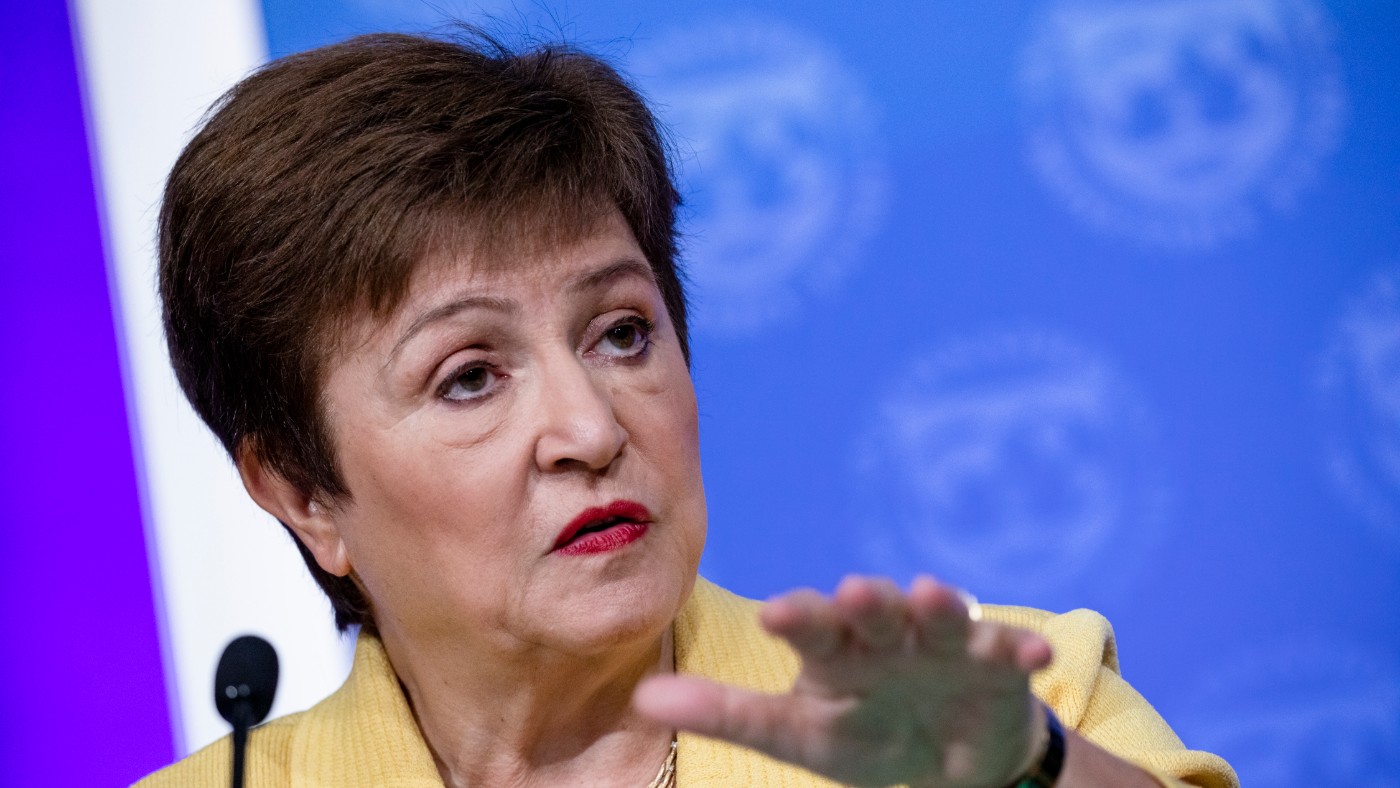Half the world’s countries ask for IMF bailout
International Monetary Fund boss says she will use ‘full toolbox’ to deal with ‘emergency like no other’

A free daily email with the biggest news stories of the day – and the best features from TheWeek.com
You are now subscribed
Your newsletter sign-up was successful
More than half the world’s countries have approached the International Monetary Fund for a bailout to weather the financial crisis caused by the coronavirus pandemic.
The IMF’s Managing Director Kristalina Georgieva told a meeting of G20 finance ministers and central bank governors that more than 100 countries have so far asked for emergency assistance.
With many countries in full lockdown and their economies effectively in stasis, the IMF warned this week the coronavirus pandemic is plunging the global economy into its deepest slump since the Great Depression of the 1930s.
The Week
Escape your echo chamber. Get the facts behind the news, plus analysis from multiple perspectives.

Sign up for The Week's Free Newsletters
From our morning news briefing to a weekly Good News Newsletter, get the best of The Week delivered directly to your inbox.
From our morning news briefing to a weekly Good News Newsletter, get the best of The Week delivered directly to your inbox.
On Tuesday, the Washington-based body said it expects global GDP will contract by 3% in 2020, “a far worse recession than the one that followed the global financial crisis of 2008” says CNN, with a risk it could extend into 2021 if policymakers fail to coordinate a global response.
The Telegraph estimates world leaders have already committed almost $8 trillion (£6.4 trillion) to battle the coronavirus and its economic fallout, “driving public debt up to dangerously high levels”.
More than $7.8 trillion has so far gone towards health, tax and spending measures, public sector loans and equity investments, plus other loan guarantees and liabilities.
“At the same time tax revenues will slump as the economy grinds to a halt,” says the paper.
A free daily email with the biggest news stories of the day – and the best features from TheWeek.com
Speaking to CNBC, Georgieva she was ready to use the IMF’s “full toolbox and $1 trillion firepower” of lending capacity, noting that 10 countries have so far received emergency funding, and half of the remaining countries should receive their requested financial lifelines by the end of April.
“This is an emergency like no other. It is not because of bad governors or mistakes,” she said, “and for that reason, we are providing funding very quickly.”
CNN’s Sherisse Pham writes that while the IMF chief “acknowledged that the fund has a reputation for imposing tough conditions on countries seeking bailouts”, this time she asked for governments to prioritise paying doctors and nurses, making sure health systems are functioning, and vulnerable people and first responders are protected.
While the coronavirus has so far concentrated mainly in G20 nations, in a recent interview with Reuters, the IMF’s chief economist, Gita Gopinath, predicted that the pandemic would be devastating for the economies of poor countries, “many of which have fewer resources to deal with the fallout from the pandemic, not to mention high debt levels and weak health-care infrastructures”, says Forbes.
–––––––––––––––––––––––––––––––For a round-up of the most important stories from around the world - and a concise, refreshing and balanced take on the week’s news agenda - try The Week magazine. Start your trial subscription today –––––––––––––––––––––––––––––––
-
 Nuuk becomes ground zero for Greenland’s diplomatic straits
Nuuk becomes ground zero for Greenland’s diplomatic straitsIN THE SPOTLIGHT A flurry of new consular activity in the remote Danish protectorate shows how important Greenland has become to Europeans’ anxiety about American imperialism
-
 ‘This is something that happens all too often’
‘This is something that happens all too often’Instant Opinion Opinion, comment and editorials of the day
-
 House votes to end Trump’s Canada tariffs
House votes to end Trump’s Canada tariffsSpeed Read Six Republicans joined with Democrats to repeal the president’s tariffs
-
 Epstein files topple law CEO, roil UK government
Epstein files topple law CEO, roil UK governmentSpeed Read Peter Mandelson, Britain’s former ambassador to the US, is caught up in the scandal
-
 Iran and US prepare to meet after skirmishes
Iran and US prepare to meet after skirmishesSpeed Read The incident comes amid heightened tensions in the Middle East
-
 Israel retrieves final hostage’s body from Gaza
Israel retrieves final hostage’s body from GazaSpeed Read The 24-year-old police officer was killed during the initial Hamas attack
-
 China’s Xi targets top general in growing purge
China’s Xi targets top general in growing purgeSpeed Read Zhang Youxia is being investigated over ‘grave violations’ of the law
-
 Panama and Canada are negotiating over a crucial copper mine
Panama and Canada are negotiating over a crucial copper mineIn the Spotlight Panama is set to make a final decision on the mine this summer
-
 Why Greenland’s natural resources are nearly impossible to mine
Why Greenland’s natural resources are nearly impossible to mineThe Explainer The country’s natural landscape makes the task extremely difficult
-
 Iran cuts internet as protests escalate
Iran cuts internet as protests escalateSpeed Reada Government buildings across the country have been set on fire
-
 US nabs ‘shadow’ tanker claimed by Russia
US nabs ‘shadow’ tanker claimed by RussiaSpeed Read The ship was one of two vessels seized by the US military